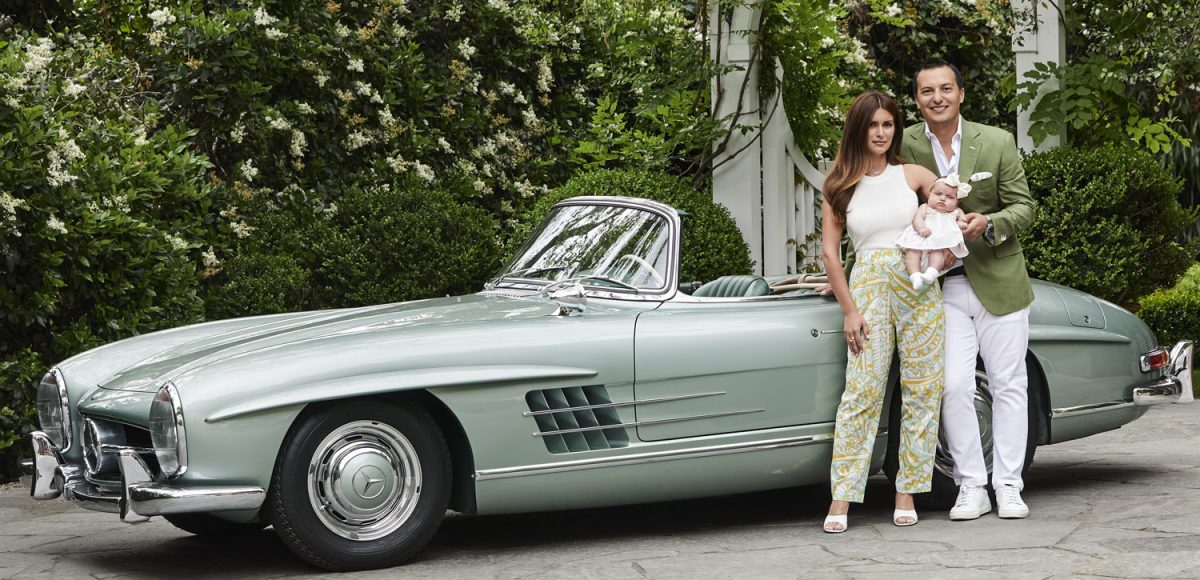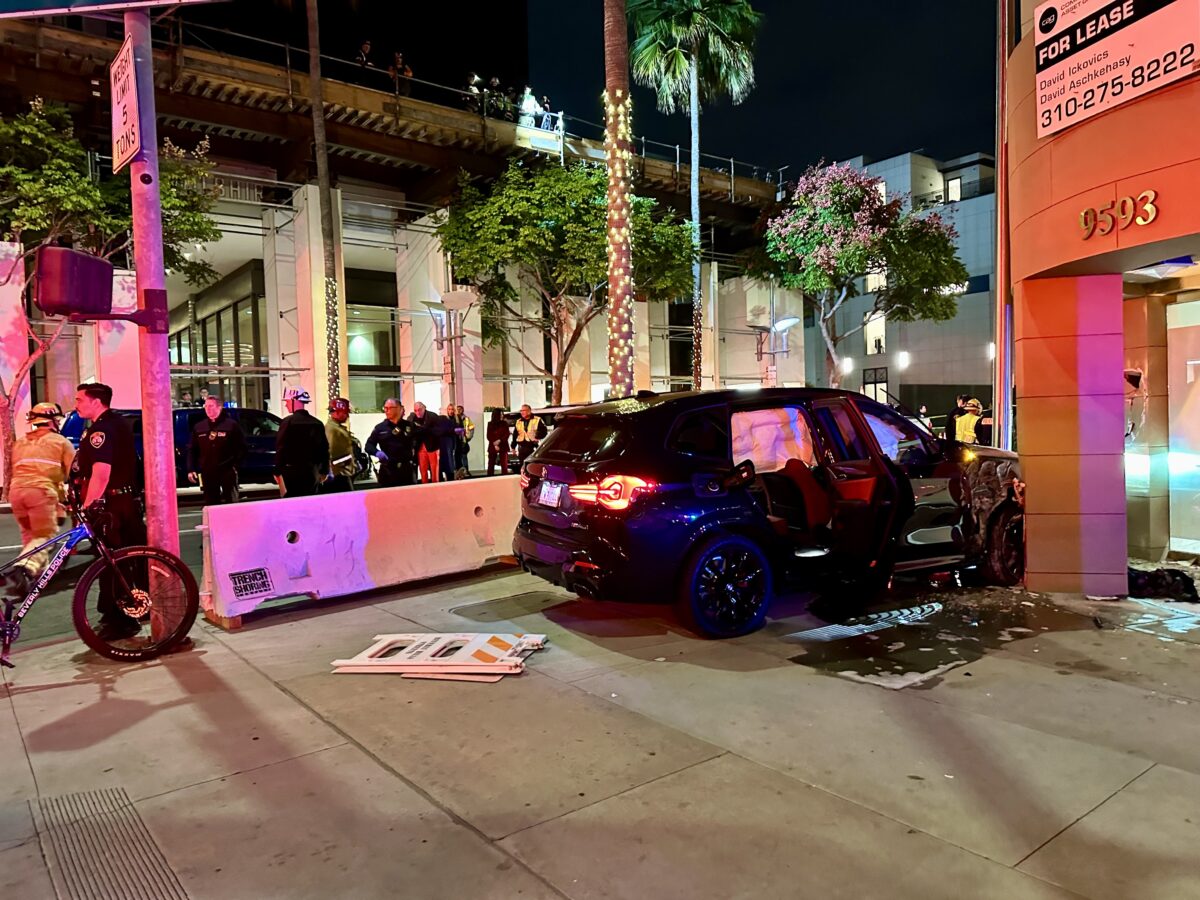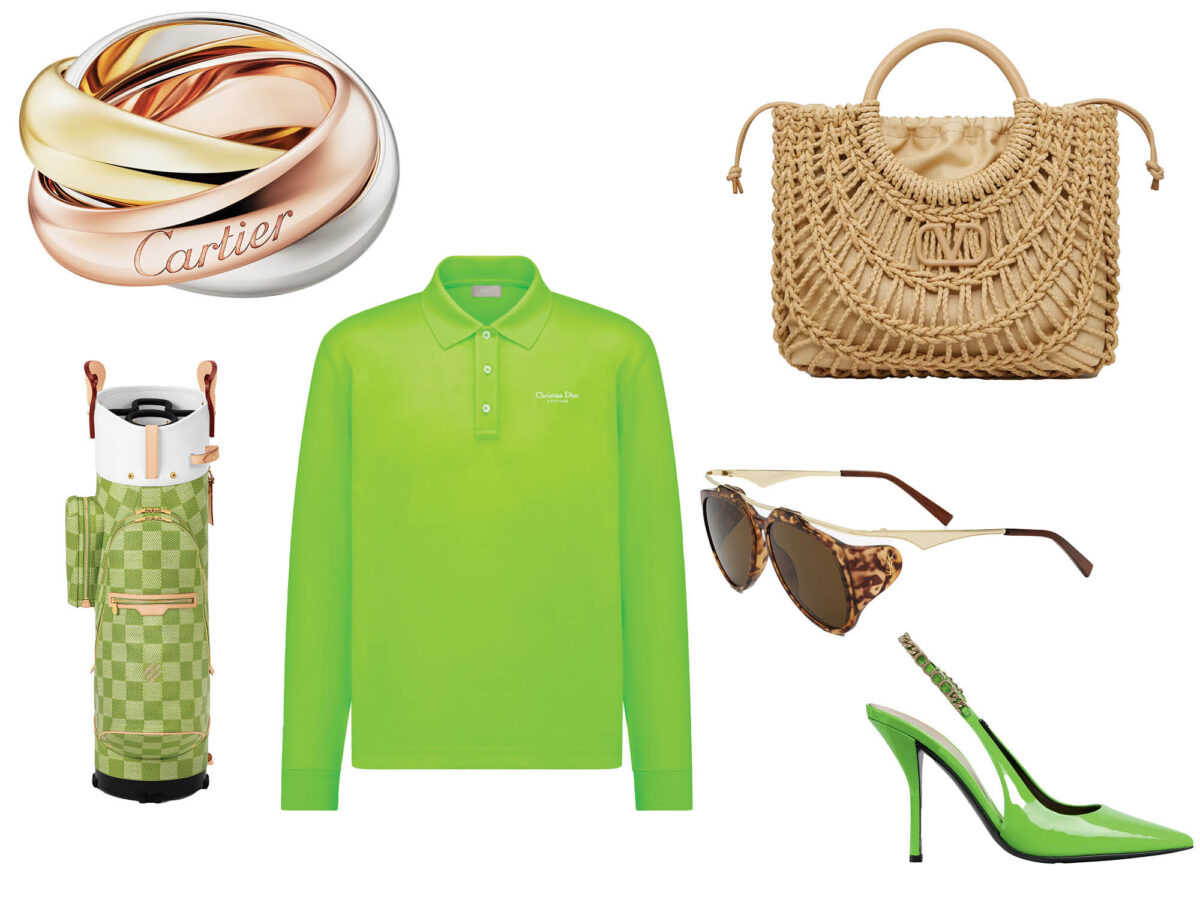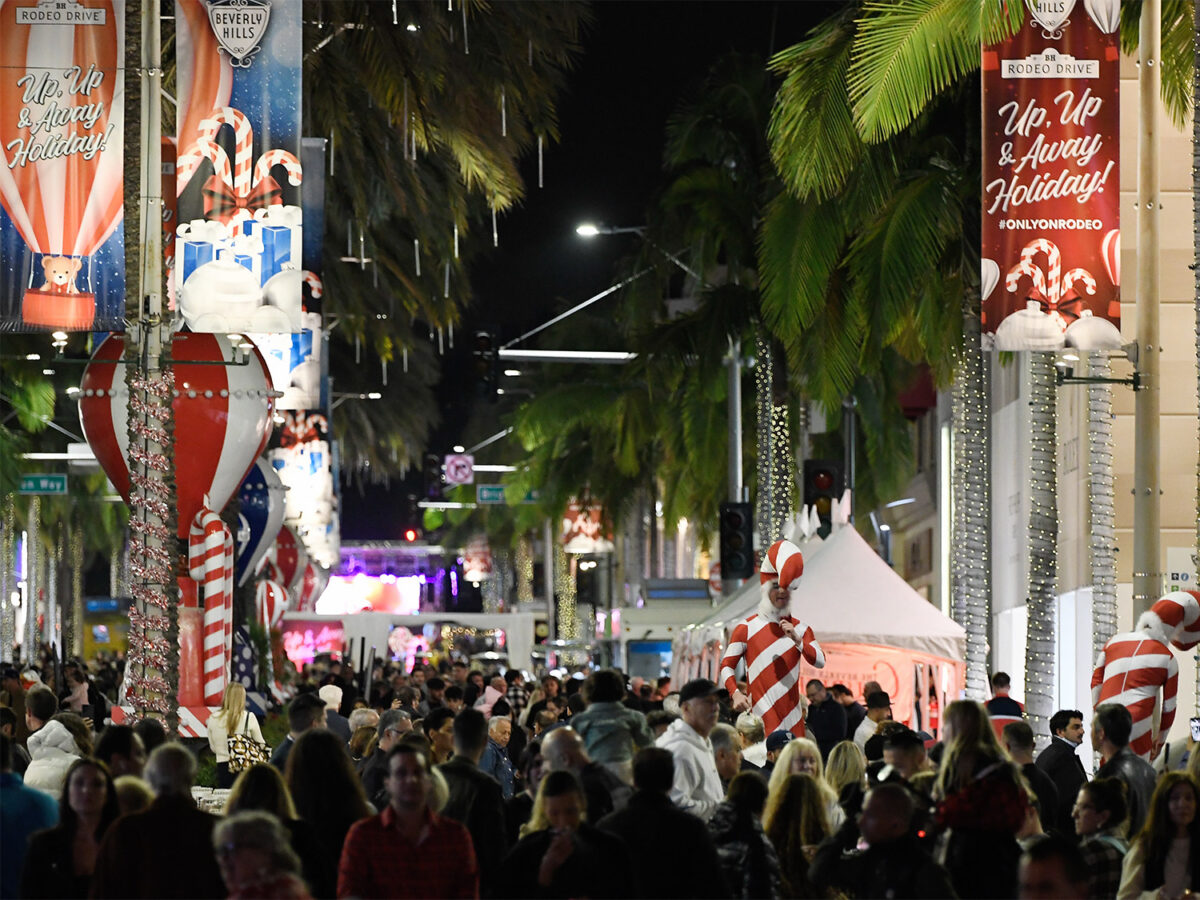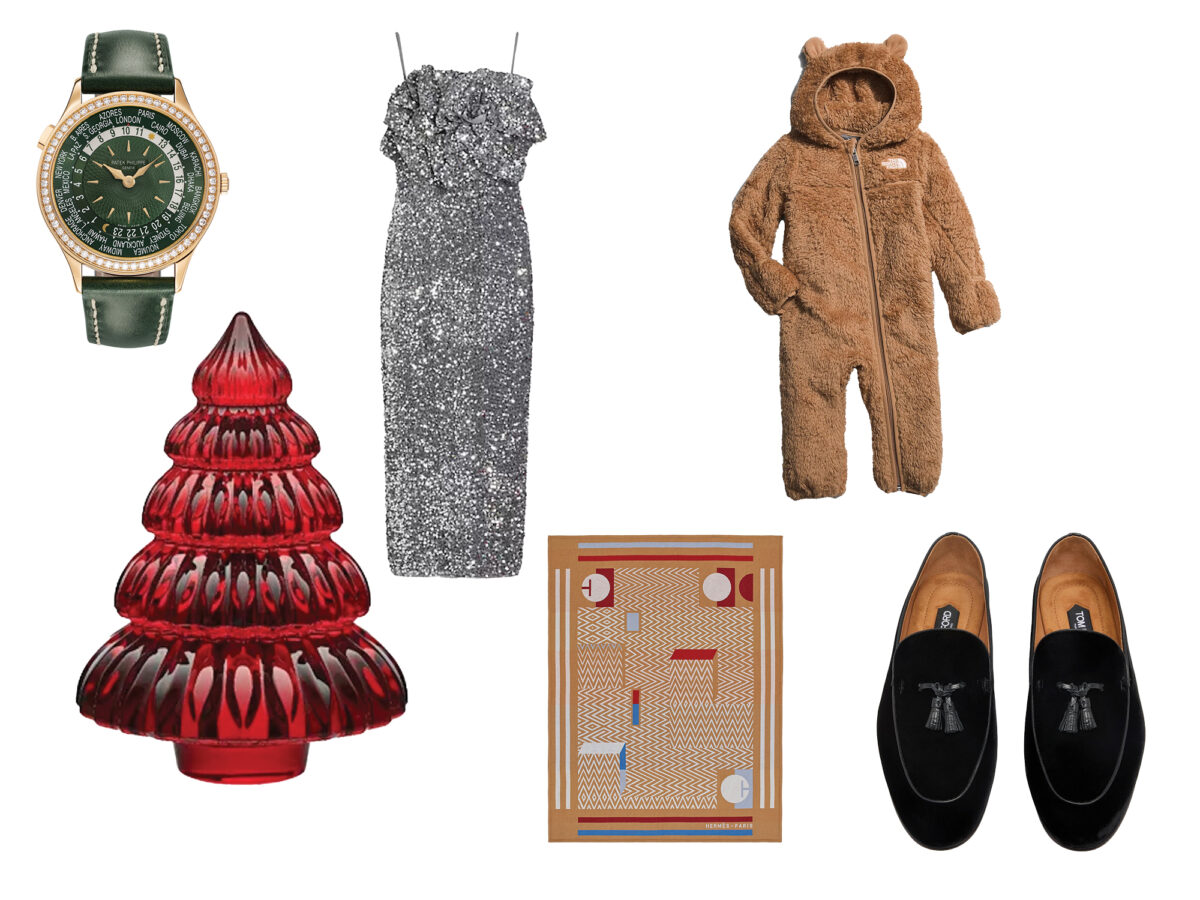“You drive the best car! You live in the best house! You wear the nicest watch! Who are you to have these things?” asked Bijan Pakzad to his 19-year-old son Nicolas. “I had no choice. I came to this country, and I worked hard. Because I had to, to be successful. You, you live in Malibu; you drive a Porsche.”
“Thank you for all you do for me,” Nicolas replied.
“You wear the finest clothes,” Bijan shot back.
“I’m grateful,” responded Nicolas earnestly.
“What are you going to do when you are 30? Huh?” Bijan pressed.
Bewildered, Nicolas asked, “Dad, did I do something wrong?”
Bijan’s penetrating eyes meet his son’s.
“I’m sorry for whatever I did,” said Nicolas as he watched his father disappear through the office door.
Racking his brain, Nicolas struggled to understand his father’s anger. Thursdays were Nicolas’ day off from the boutique. But this day, his classes at Pepperdine University ended early. He decided to cruise on into Beverly Hills and surprise his father. As it turned out, his father surprised him.
Bijan returned holding a gorgeous jacket. Recognizing the garment, Nicolas sighed in relief. It’s the one they designed together in Italy six months earlier. Its price tag was half the cost of his Porsche.
Wrestling his generous nature, Bijan wanted to give his son the very best but feared the trappings of excessiveness would impede Nicolas’ desire for growth and accomplishment.
Bijan put the jacket on Nicolas, and they stood together, father and son, looking in the mirror, proud of their design. “It’s my gift to you,” Bijan said. They hugged. The moment was special, more than Nicolas could have imagined.
It would be the last moment Nicolas would ever share with his father.
Back home in Malibu, a few hours later, Nicolas received the call. His father had suffered a stroke and was being ambulanced to Cedars-Sinai Medical Center.
Arriving at the hospital, Nicolas was greeted by his older sisters and other family members. Bijan was rushed into surgery, but the doctors explained there was little hope. The former Mayor of Beverly Hills, Jimmy Delshad, the highest ranking Iranian elected official in the United States at that time, hugged Nicolas and looked into his eyes. “You are Bijan now. You are a man. Make us proud.”
“It was the push I needed to give me strength,” said Nicolas. Over the next several days the Beverly Hills Police Chief, along with many other family friends, visited him and his family at his father’s house in Beverly Hills.
Bijan Pakzad never regained consciousness. The man who built the legendary House of Bijan, the most expensive boutique in the world and the one and only international sartorial design house born in Beverly Hills, passed away two days later on April 16, 2011.
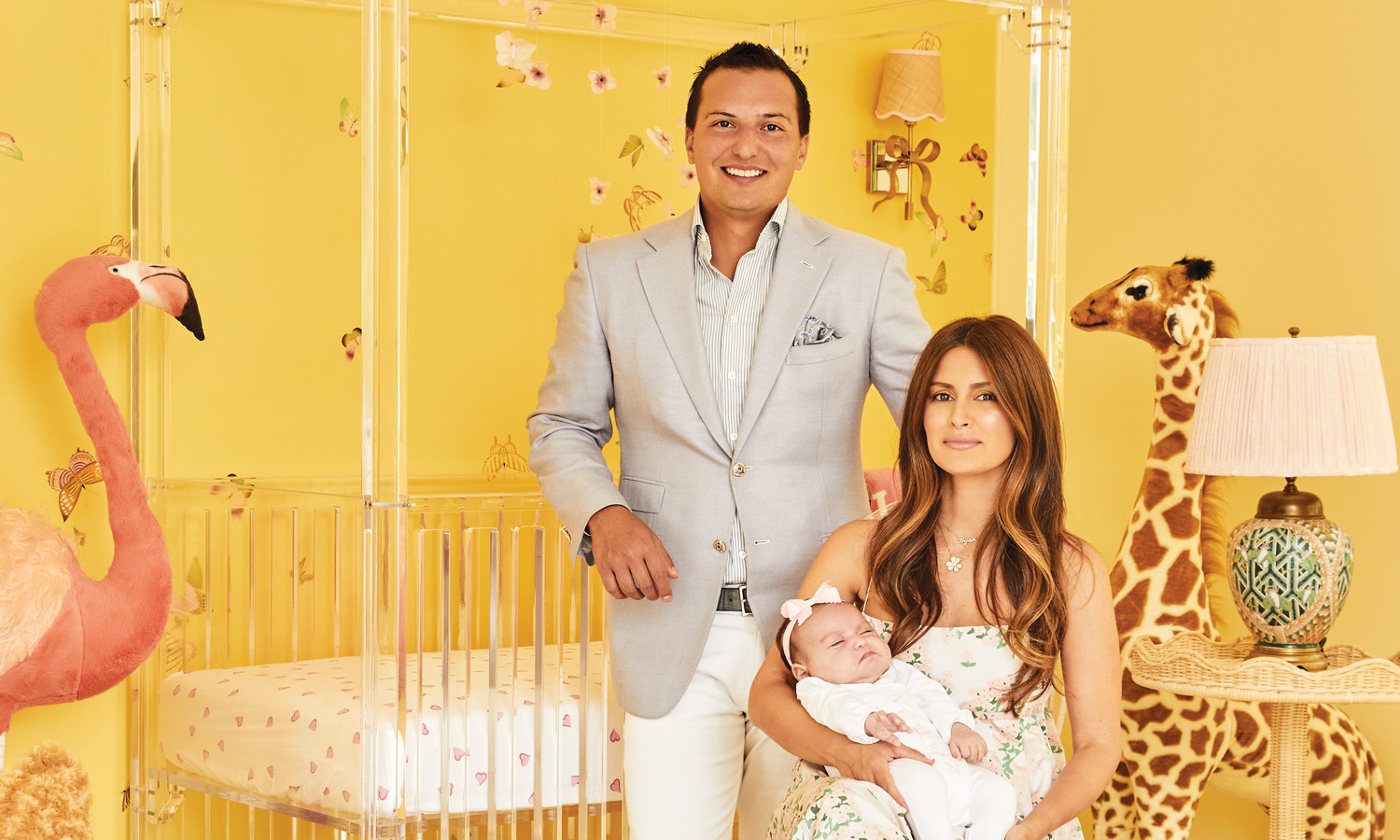
Unlike his immigrant father from Tehran, Iran, Nicolas Bijan Pakzad was born at Cedars-Sinai Medical Center, the same hospital that tried to save his father, and the same medical center his beautiful daughter came into the world.
Bijou Bijan, named in honor of her grandfather, was born this year on 2-22-22. Her welcomed birth presented beyond reason, an eerily impactful connection to Bijan’s birth of April 4, 1944 (4-4-44). Was it coincidental or a sign of Bijan’s presence, a north star in his son’s life? Nicolas believes his father is watching over him both in his personal and his professional life.
For years, Nicolas has had a burning desire to spread his wings and fly.
“Like my dad felt at my age, I too felt a calling to achieve my own ambitions,” says Nicolas, now 30 years old. “I didn’t want to look back 25 to 35 years from now and know that I didn’t at least try, try to build my own legacy.”
What held him back?
“In starting my own brand, I wanted to make the right decision respecting my father’s legacy, a new creative endeavor, an extension of his legacy. It’s taking his traditions, his teachings, his generosity, his principles, his perfectionism, his authenticity, all the things that drove him, and giving it a new modern interpretation.”
NB44, a new luxury brand set to launch late this year, is Nicolas’ own line of bespoke menswear that’s less buttoned-up and formal. Aimed at a more youthful, modern clientele, “It’s a new service and experience that the world craves in today’s changing times,” explains Nicolas. And the name, NB44? It’s Nicolas’ initials coupled with the number that honors his father’s birth.
Nicolas is settling into his new role as father himself. He and his wife Roxy Sowlaty, who once starred on the E! Channel series the “Rich Kids of Beverly Hills,” are enjoying this exciting new chapter as parents.
Roxy and Nicolas were friends first. Born and raised in Beverly Hills, Roxy was introduced to Nicolas by her high school pal, Rob Kardashian, and she and Nicolas began to date a few years into the friendship. Turning towards design after graduating from USC and Parsons New School of Design with a master’s degree, Roxy, today, is a talented and successful interior designer with her own firm specializing in high-end residential projects.
In Paris, on the famous Pont des Arts bridge, she happily accepted Nicolas’ surprise proposal and planned a grand wedding in Italy.
COVID-19 derailed it to an intimate, beautifully glamorous garden wedding in their backyard seen by, according to Nicolas, millions of interested viewers on social media.
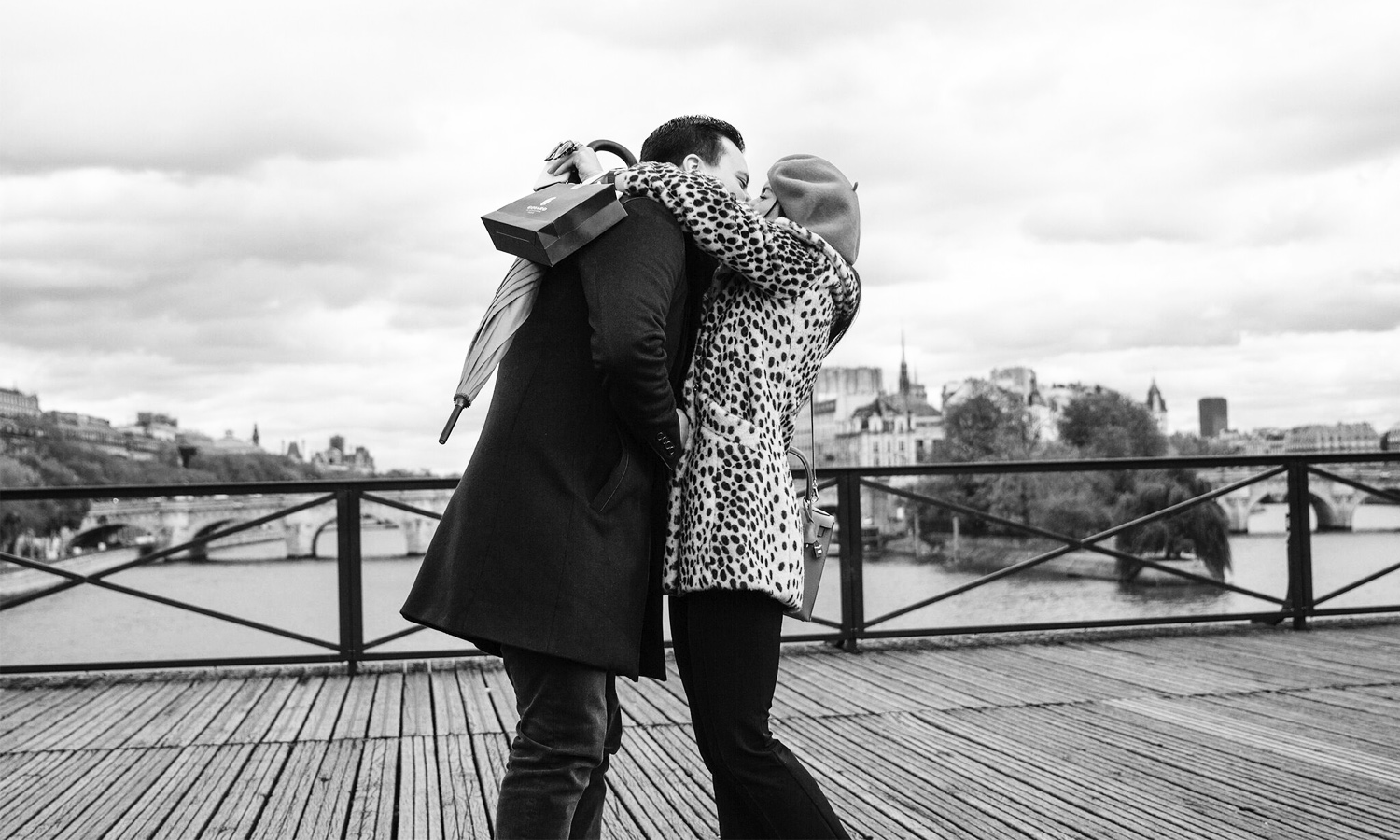
While showing me through their extraordinarily designed San Ysidro Ranch style traditional home in Beverly Hills, formerly Taylor Swift’s residence, Nicolas shares, “This is all Roxy. I take no credit.”
With a spring in his step, Nicolas leads me up the stairs to visit the nursery, a charmingly sunny, perfectly outfitted baby nest in Bijan yellow. I learn, “Yellow” was a possible name choice, but Nicolas would not hear of it. Bijou, meaning “gem” in French, is a tribute to Bijan, and the name Nicolas wanted for his daughter, though he and Roxy both affectionately call her “BB.” He leans over the crib railing and touches BB’s beautiful face. It’s clear he’s mesmerized by her cooing sounds, her delicate beauty and the miracle of her presence.
“I’ve never loved Roxy more than I do now. And the whole process of the pregnancy and giving birth, a whole new chamber of my heart has opened up. I want 20 more kids, but I am sure Roxy would object.”
Returning back down the stairs, Nicolas acknowledges the importance of the Beverly Hills community to him just as it was to his late father. A few weeks earlier, Dean Viana, a former Captain of the Beverly Hills Fire Department, had come by to meet Bijou and to give Roxy and Nicolas CPR training now that they’re parents. Having stayed in touch over the years, he was one of the heroes who had tried to save his father the night Bijan was rushed to the hospital 11 years earlier.
“There is no doubt of the contributions my father has made for Beverly Hills and, likewise, the contributions Beverly Hills has made for my father’s international success. It was a great partnership.” Nicolas cites the example of the Bijan designed cars. For years the Bijan one-of-a-kind yellow Bugatti and Rolls Royce cars were, and still are, parked in front of the store on Rodeo Drive. Not only did the city allow Bijan to do this, the City Council voted unanimously to award the House of Bijan its own yellow parking meter to match its car, a spectacle that hundreds of thousands of visitors to Beverly Hills enjoy every year.
But the parking meter and cars are just small pieces of the Bijan legacy Nicolas inherited. As a young boy, the late Bijan Pakzad admired his father, an industrialist, especially how he dressed for work. His parents sent young Bijan, one of five children, three brothers and one sister, to be educated at the exclusive Institut Le Rosey in Switzerland and in Italy. His focus was design despite his parents’ desire for him to study engineering. He opened his first boutique called the Pink Panther in the heart of a thriving Tehran. By the age of 30, Bijan knew he would never reach his goals in clothing design unless he went to America.
“He wanted to go to Beverly Hills. There he believed he could build and achieve the American dream,” shares Nicolas.
Bijan emigrated to the United States in 1973 and, along with his 50% partner Mr. Daryoush Mahboubi-Fardi, bought a parking lot on Rodeo Drive, the site for his future store. Three years later, in 1976, they opened the newly constructed “House of Bijan” on the east side of the 400 block of what has become one of the most famous streets in the world. For almost 50 years now, the House of Bijan reigns as a premiere shopping destination of the world’s elite.
Sitting down with Mr. Mahboubi in the Bijan offices, he provides this heartfelt description of his past business partner and best friend.
“The first impression when you met Bijan was that he was very personable. He treated everyone with respect and in return everybody treated him with respect,” Mr. Mahboubi says. “He was very passionate about everything he did in life. He had passion for family, for business, for design, for food. Everything he did, he did it with an extraordinary amount of passion. There was no filter blocking it out, or dimming the strength of his passion. And the third thing you felt about Bijan was that he was truly talented. Personality, passion combined with talent made for a very special recipe for success in this business.”
Soon the House of Bijan was touted the most expensive store in the world. The claim went uncontested as Bijan, cloaked in courage and fortitude, obtained and sustained his vision: The finest, exclusive sartorial house of quality and design, coupled with unmatched personal service. The result was a financial windfall.
“The proof is in his success and in the relationships he built,” says Nicolas.
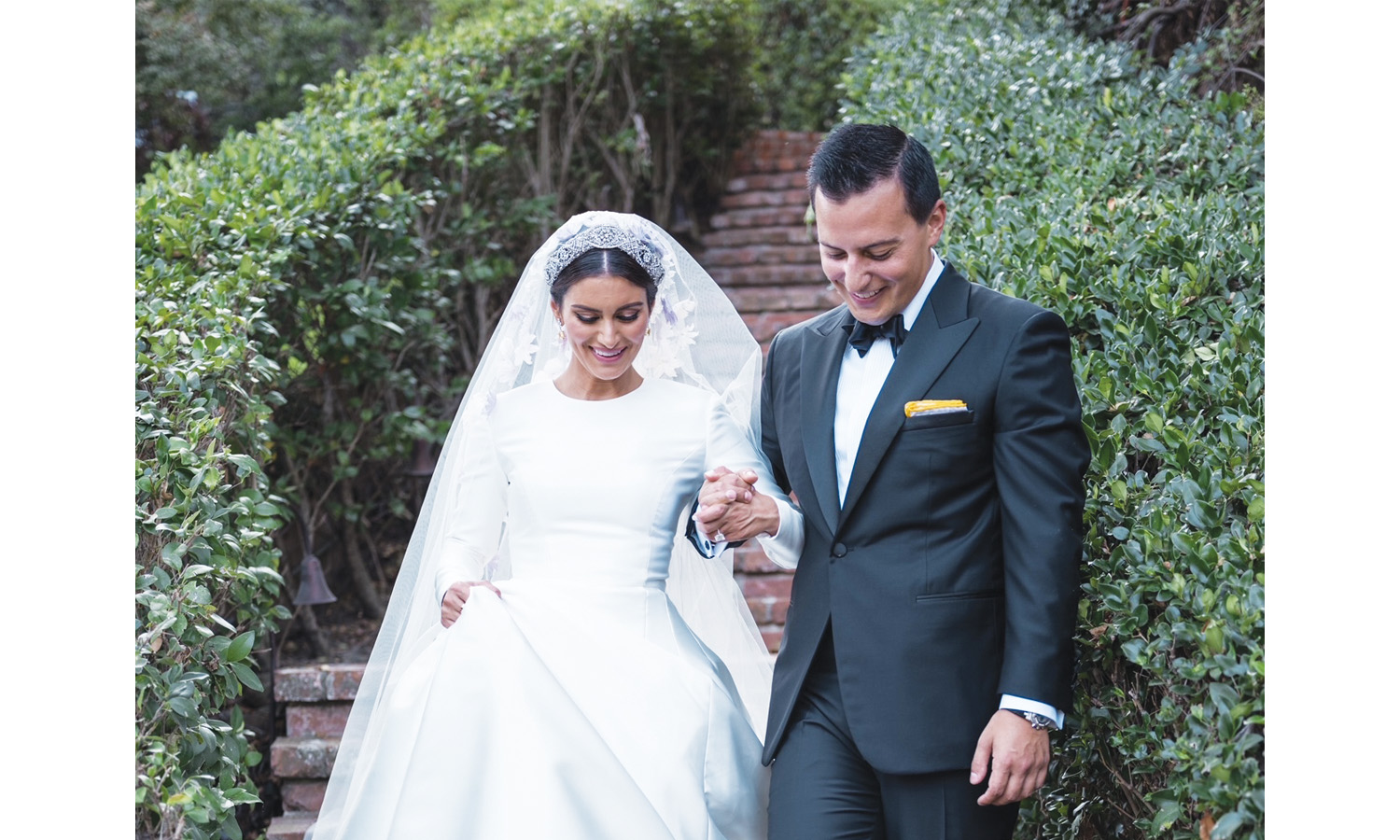
At a time when boutique owners aggressively encouraged customers to enter their stores, enticing them with marketing devices such as sales and discounts, Bijan locked his front door and said he would see customers “by appointment only.”
His reasoning was misunderstood, Mr. Mahboubi explains.
“The first day we wanted to open the boutique, Bijan said, Dar, I have an idea. I want to make it by appointment only.’ The only business of its kind in the world that was paying huge amounts of rent on the most famous street, Rodeo Drive, was saying, my doors are locked. As though you have to qualify to be able to enter. But that message was actually 180 degrees different from what Bijan meant. What he meant to say was, I respect my customers so much that when they come into my boutique, they should not be waiting or wasting their time.’ So, for example, if we have 22 staff members in the boutique when a customer walks in, all 22 members attend to one customer. No other retail operation has that kind of setup. And that is true respect for the customer and his time. And almost all of our customers are extremely important. Their time is extremely valuable.”
The average client’s attention to shop and buy is surprisingly short.
“We only get 20 to 30 minutes from the customer,” says Mr. Mahboubi. “In those 20 minutes, we can either sell them $20,000 or $2 million and we choose to sell them $2 million (when) they’re capable of buying $2 million. We’re capable of showing them, to their satisfaction, $2 million worth of merchandise, in their exact fit, their exact taste, their exact color palette, and their exact fabrics that they love. We specialize in this. We kept the business very small, but we kept adding to the value of each customer.”
Mr. Mahboubi claims that many designers have tried to copy what they do.
“Nobody has ever succeeded in copying what our formula is or what our recipe is. It’s very unique. For example, everybody makes a suit and everybody pays from $1,000 to $3,000 for hand stitching, cutting and sewing. But nobody pays $2,000 per yard for the fabric. So, a sports jacket that takes 3 1/2 yards to pay $6,000 to $8,000 just for the fabric is unheard of. But because we know nobody else would actually dare to do that, we do it. And we do it with very special colors.”
By 1985, from his second boutique located in Manhattan, the New York Times reported that Bijan had amassed 15,000 customers including kings, U.S. presidents, prime ministers, iconic movie stars, superstar entertainers and influential religious leaders. “Simplicity and honesty” best describe his clothing line, Bijan said in the article. In 2002 the New York boutique closed leaving Beverly Hills its original and only flagship boutique, allowing Bijan to remain solely in his favorite City of Beverly Hills and close to his young family.
Adding fragrances to his empire, Bijan began designing and manufacturing perfume for men and women in 1988, which earned him three prestigious Fragrance Foundation Awards, including one launched in partnership with Michael Jordan in 1997. In an article in the Los Angeles Times in 2001, Bijan Perfume and his fashion business had $3.2 billion in sales. Bijan’s designed perfume bottle is featured in the permanent exhibit of the Smithsonian Institution.
As the only son, youngest child, and heir apparent to the House of Bijan brand, the weight on Nicolas’ shoulders was incomprehensible when his father died. Just 19 years old, a sophomore in college, a part-time employee of the business, Nicolas struggled to find his footing. Days later, when he turned on his computer, he found almost 5,000 emails, condolences from people Bijan had touched.
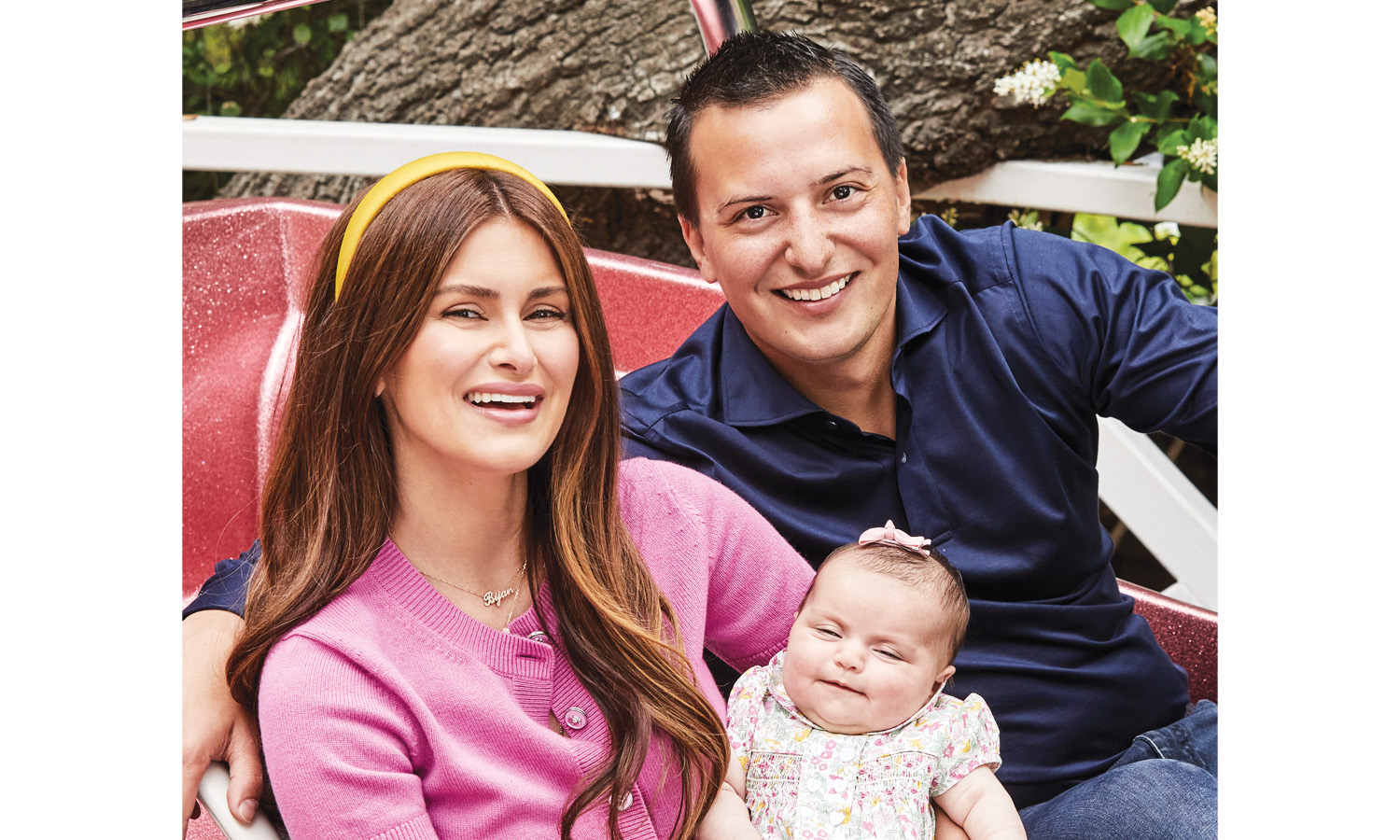
One such letter came from an Iranian writer, Shirin Sadeghi, assigned to write Bijan’s obituary for the Huffington Post. In it she wrote, “He dressed President Obama, the Queen of England, Ronald Reagan, the Sultan of Brunei, Prince Charles, Bill Gates and any number of others of the powerful and wealthy of this world. But more than anything he dressed the soul of so many of us young Iranians in America who felt unwelcome and unsure of where we fit in within this massive country that had so much to do with what happened and was happening in our homeland. The reason for my success is because I’m Iranian,’ Bijan said once. We never doubted it, or forgot his words.”
Bijan was revolutionary, not only as a clothing designer but also as an immigrant. Instead of being ashamed of his roots, he not only was proud of it; he used it as a part of his unique style. His authenticity began with his unwillingness to conform or completely assimilate.
The House of Bijan’s website quoted Bijan, “The world said to conform, the world said to settle for less. The world said to compromise and no one would know. So I made my own world.”
He didn’t change his Iranian name, his accent, or his ideals of dressing when he came to Los Angeles. He didn’t focus on his disadvantages or the people who resented him because of his former nationality.
While he communicated through the vernacular of “broken English,” the powerful meaning behind his words was always understood. Nicolas considers that his father used his broken English to give himself more latitude with making his points and to “award himself permission to speak words that might ordinarily be considered inappropriate, but with an amusing charm and naivete.”
“Not willing to conform took serious courage,” says Nicolas, the kind of courage that became Nicolas’ guiding light. He had to accept the reality of his father’s sudden death, and push forward. “It is what it is and there’s nothing I could do about it. You sink or swim,” he says. And the affirmations of his father’s legacy, through the stories in the emails, truly helped.
Nicolas remembers his father’s words, “You must be kind to everyone you encounter. Treat everyone with respect. Be polite, gracious, with everyone you meet. Because you never know who they are, or how they may come back in your life.”
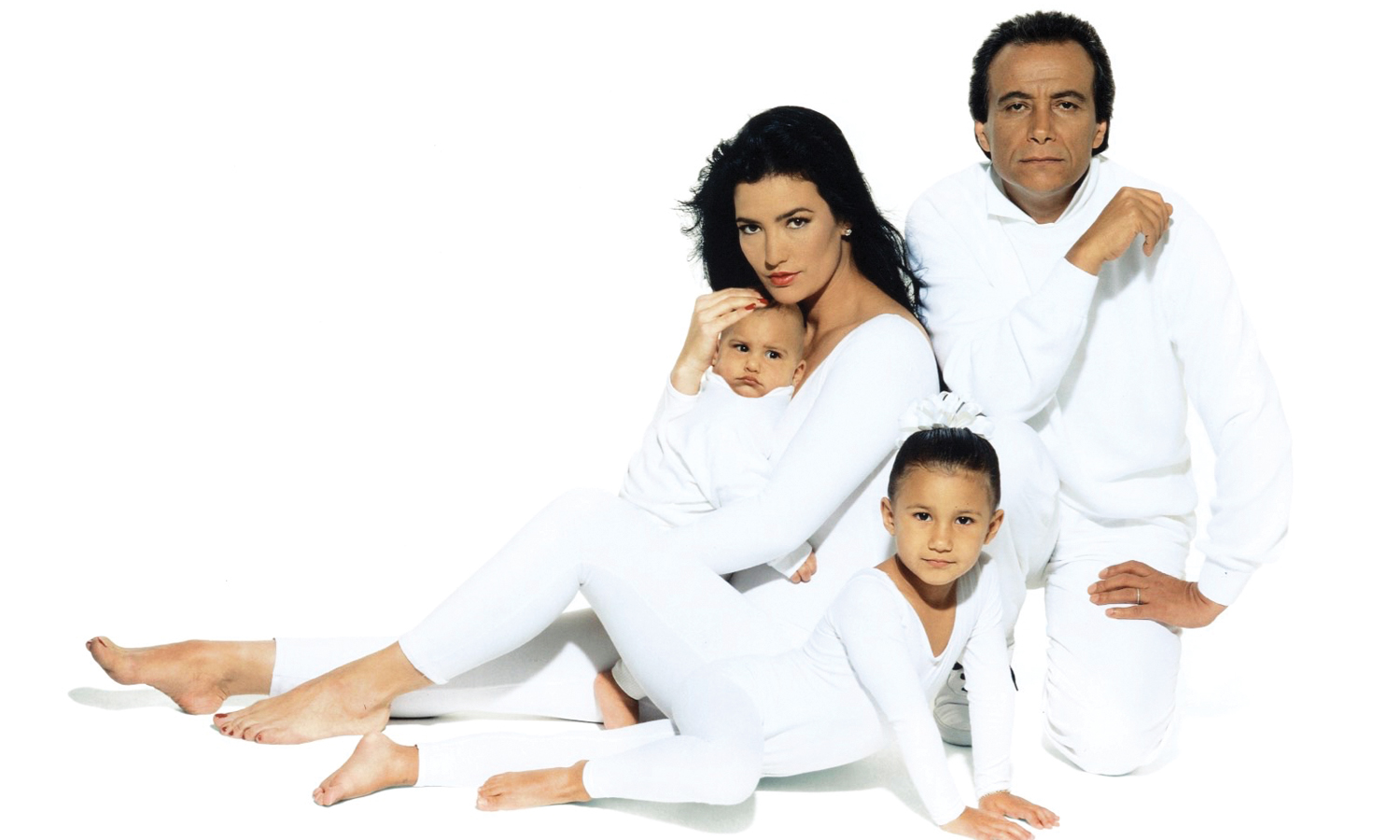
Nicolas’ parents had first met professionally when Bijan had hired Nicolas’ mother, Tracy Hayakawa, a model, for his fragrance lines. She, along with their children, would later be featured in countless ads, billboards, commercials and magazines in tribute. Half Japanese and half Irish, the exotic beauty was “the love of his life,” Nicolas shares, even though they were divorced by the time Nicolas was a year old. “My dad was in love with my mom until the day he passed away,” a gift Nicolas is grateful for as a child of divorced parents. Their relationship remained extremely amicable throughout Nicolas’ life.
A product of many cultures, Iranian, Japanese, and Irish, Nicolas is proud to be an Iranian American as well as a Japanese American. But growing up, he was challenged by his inability to fully communicate through language with many of his family members, especially his Iranian grandfather. Bijan brought his entire family from Iran to Newport Beach, California. Nicolas’ grandmother, who is still alive today, is full Japanese.
When Nicolas was a toddler, his mother began a relationship with the American billionaire businessman and philanthropist, David H. Murdock. Among many positions, Murdock was the Chairman of Dole Food Company, owner of the Hawaiian island of Lanai, and later would develop the luxury Sherwood Estates and Sherwood Country Club in Thousand Oaks. His mother married Murdock a few years later, and young Nicolas was raised on the Murdock farm in Thousand Oaks. Shuffling between his weekdays on the sprawling farm and weekends in Beverly Hills with his father, Nicolas had a privileged life. Whether he was meeting royals or rulers of countries with his father, or running on pineapple plantations and christening cargo ships in Germany with his mother, there is no doubt Nicolas was exposed to the finest things life offered.
For father-son one on one time, Bijan would take Nicolas on long day trips in the car. Cars were a passion they both shared. Bijan had amassed a pristine car collection including designing multimillion-dollar cars in partnerships with Rolls-Royce and Bugatti and enjoyed sharing his love of automobiles with his impressionable young son. Often surrounded by people, this was Bijan’s way of bonding with Nicolas away from his staff. Cruising to the beach, on Sunset Boulevard, or up and down the coast, “that was our thing on Sundays,” Nicolas recalls fondly.
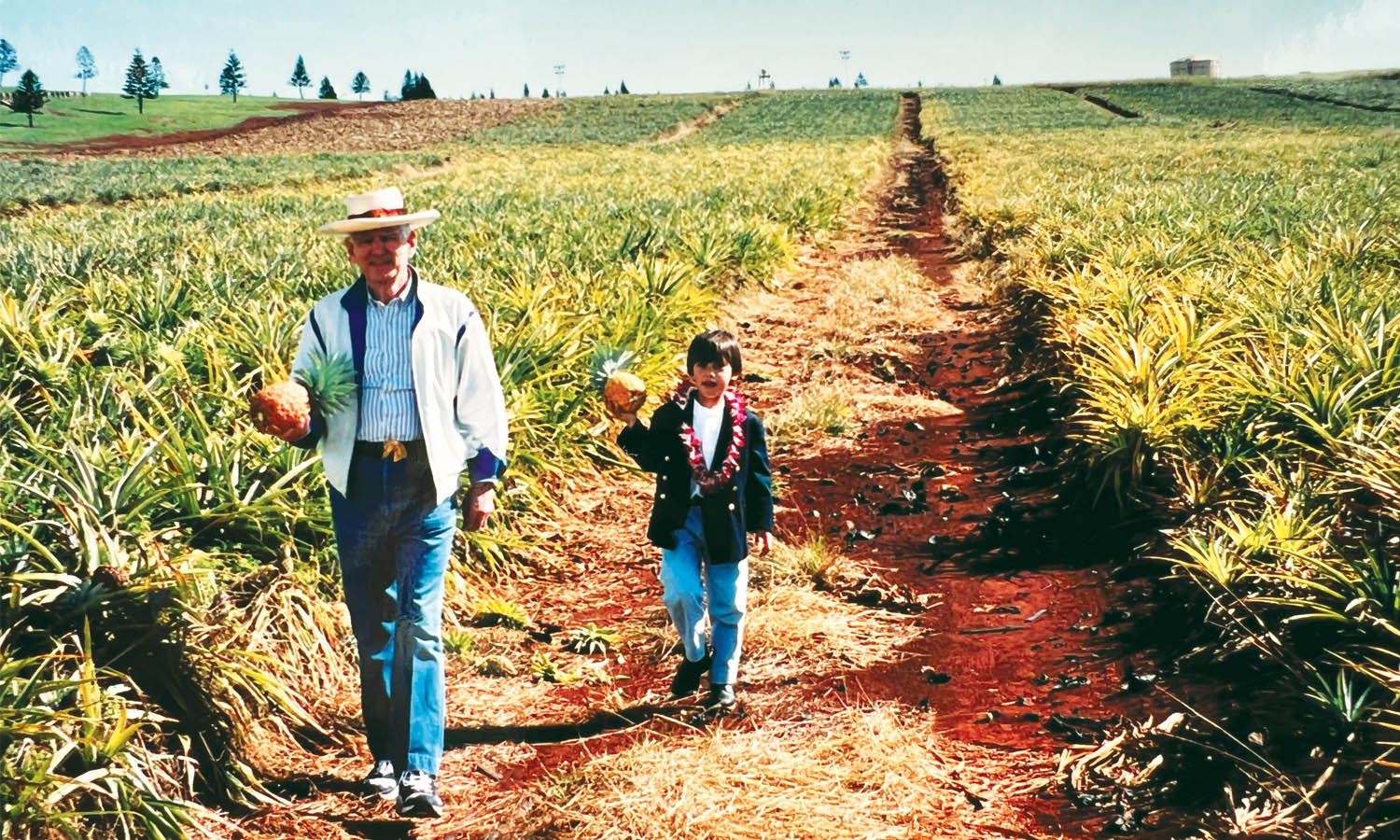
“I remember the first conversation I had with my father about my future. We were driving on the 405 Freeway, about to get onto the 101 Freeway. Just me and him. I remember this; it’s engraved in my mind. He said, I started my career with relatively little. Look where you’re starting. What you’re starting with. You could be as big as Ralph Lauren. You could be as big as Giorgio Armani.’ And by the way, Ralph Lauren and Giorgio Armani, they looked up to him. But the point is he was trying to instill in me that I cannot take for granted what he had created for me.”
This conversation did not intimidate Nicolas. Instead, it helped to mold him and make him feel confident. It also prepared him for what was to come all too soon.
“These profound discussions came from a point of this amazing love, from him to me. Losing your dad at 19, a complete shock in my life, a lot of people would ask themselves, Oh my God was my dad proud of me? Did I make him proud?'”
Nicolas has no doubts.
“Every day he was telling me how proud he was. It gave me a sense of surety.’ I was very disciplined by him. He would be tough and hard on me, but he would always show so much love. And even after he would yell at me as parents yell at their children when they deserve it, because God knows I deserved it, he would embrace me after. I knew I just had to sit there and let him discipline me. And then after, he would make an appearance in my bedroom or wherever I was and try to spend quality time with me.”
Growing up with his mom and stepdad during the week and his father on the weekend gave Nicolas, he believes, the right balance. He just had to make sure to call his father every single day.
“That was the rule, no matter what. You have to imagine, me being away from my father during the week was tough for him. I’m sure he felt like he was losing me. If I broke that rule and didn’t call him one day, I was scared to call him the next day. When I finally did, he’d ask why I didn’t call. Then he’d hang up on me. And I’d call him back or I’d be in more trouble. I know now, it was a lesson. I had to be present in my father’s life.”
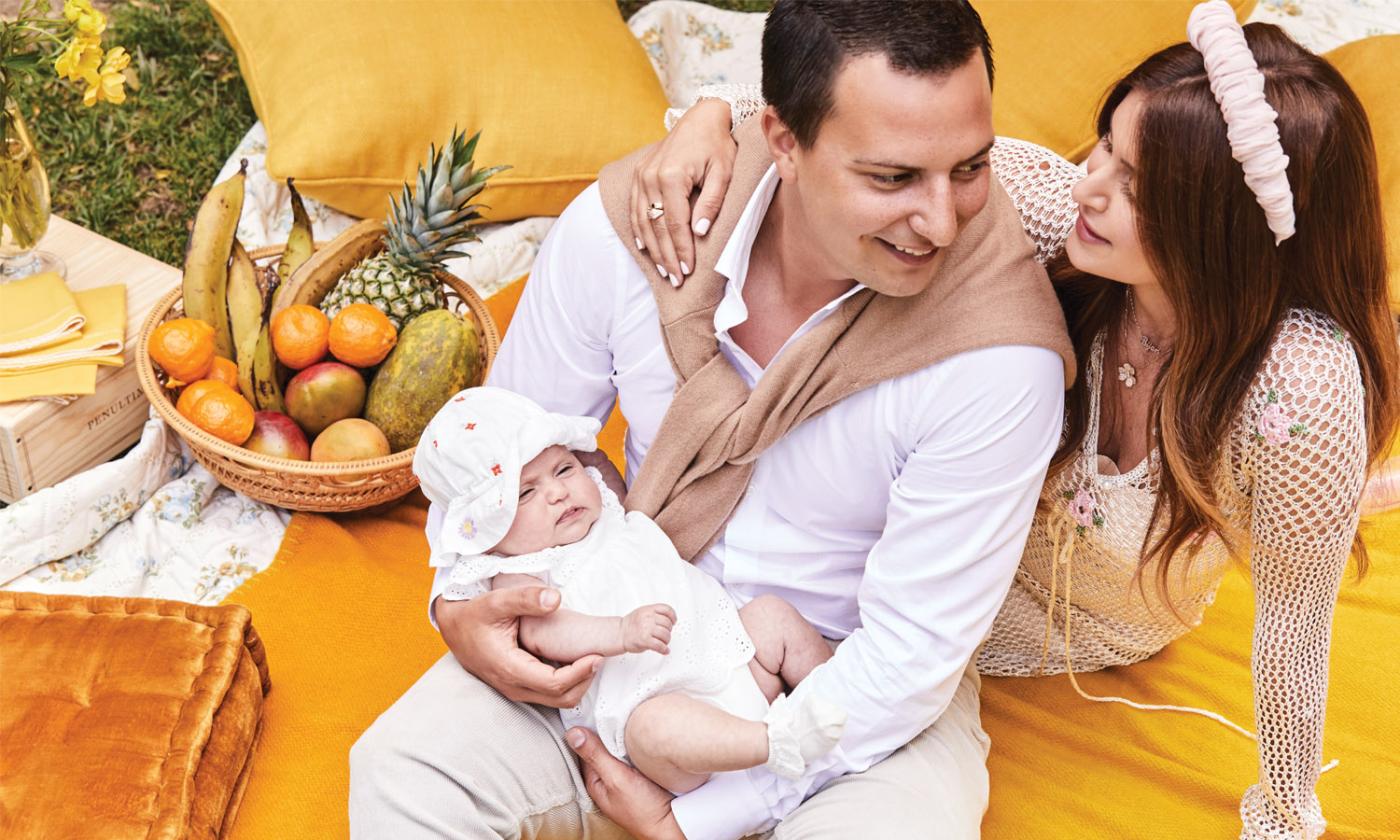
While walking through Nicolas’ beautiful home during our interview, he points to a photo in his home office of his mother holding him as a baby and offers proudly, “Bijou is identical to her.”
Nicolas has always been close with his mother. He describes her as a “very strong, powerful woman. She had to be to have been married to such incredible and powerful figures with her children. She’s my biggest supporter, my bodyguard, my protector.”
Behind his desk, he leads me to personal letters, many from dignitaries including U.S. Presidents Bush 41, Clinton, Bush 43, Obama, and Trump and says, “I’m hoping for President Biden, too.” All contain the recurring theme of gratitude to Nicolas for helping them look good. There are also several signed photos of Muhammad Ali with whom Nicolas was very close to as well as a red glove signed by the two biggest boxers in the world, Gennady Golovkin and Canelo Alverez. He explains, “They’re rivals as big as Ali and Frazer. They fight each other but they came together to sign this glove for me.”
On his desk sits a little leather sign, “It can be done.” It was his stepfather’s, and he shares, “I believe Mayor Lili Bosse has one on her desk, too.” He smiles, “I’m in good company.”
Recently Nicolas celebrated his stepfather’s 99th birthday. Even after Nicolas’ mother and Murdock divorced when Nicolas was a teenager, Nicolas still credits him for instilling life’s values and teaching foundational lessons.
“Mr. Murdock really did guide me from a boy to a man. And even after my father passed away, he was still guiding me from a boy to a man,” Nicolas says with reverence.
Nicolas’ mother shares, “David gifted little Nicolas his first car at 10 years old, a small two-seater truck to drive around the farm, a stick shift no less. I would often come home to find little Nicolas not studying with his tutor, but out driving the tutor around the ranch giving guided tours. It was something else to drive with him. He always enjoyed the company of adults and could relate with them as no kid could. Adults also always gravitated to young Nicolas; I believe they could see the uniqueness’ and enjoyed his company.”
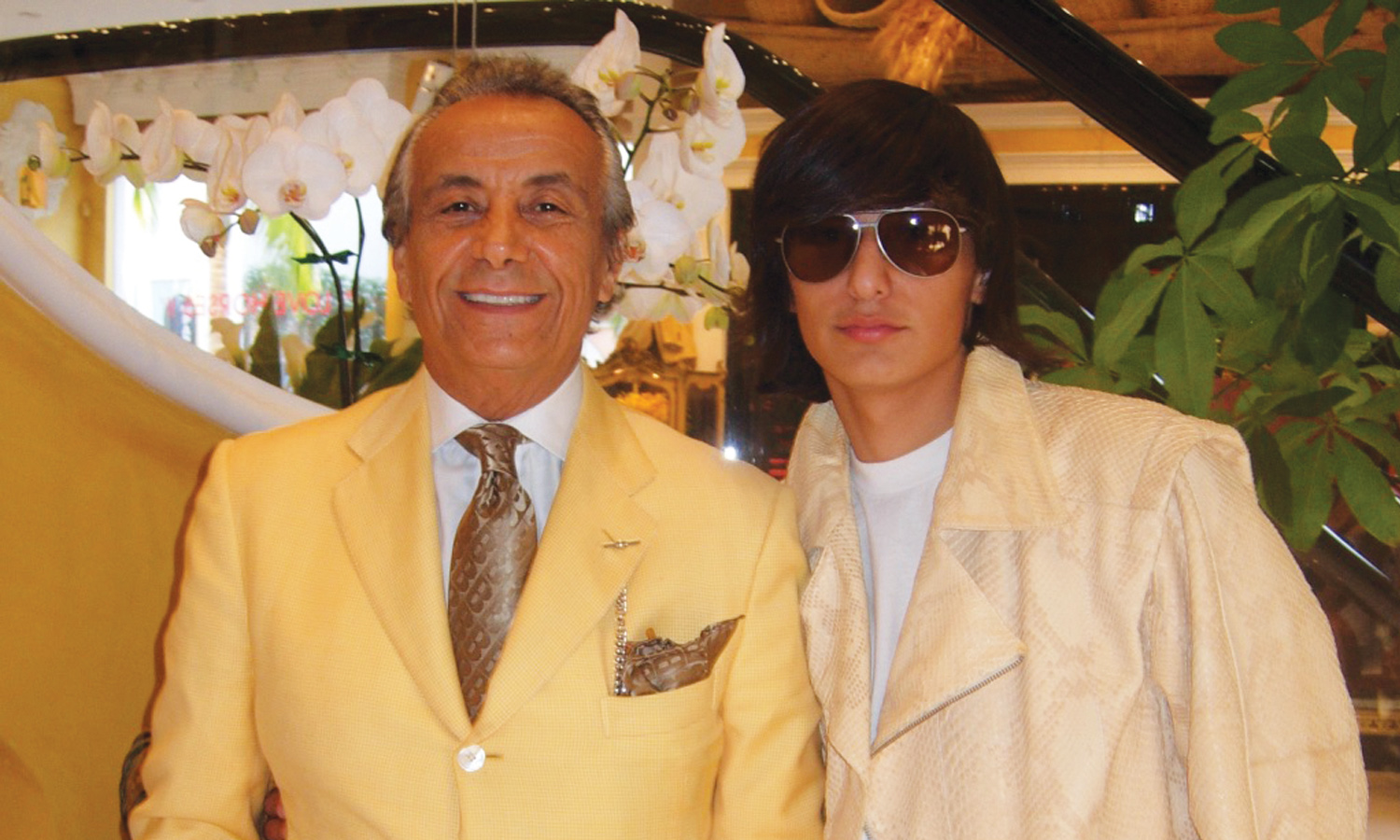
She goes on to explain how close Nicolas and his father were at the end of his life and how Bijan groomed him to take the reins. But, she adds, “At 19 Nicolas needed more time with him. The irony is that had Bijan not passed, Nicolas would not have had the opportunity and obligation to step into those very large shoes which he has done with such grace, dedication and love. He had to grow up very fast suddenly and navigate some very complicated matters and relationships; it was heartbreaking. But as Nicolas does, he won over hearts and proved himself and has grown into an extraordinary businessman in his own right. It is uncanny sometimes when Nicolas will do or say something exactly the way his father would have said or done or even reacted’ to as a man now. Something Nicolas could not have learned from Bijan. It is almost as if Bijan himself is inside of Nicolas Forget that Nicolas is the spitting image of his father down to his toes quite literally,” she laughs.
As a child, Nicolas loved hanging out on the farm with the horses, chickens and the cows, riding dirt bikes, driving his truck and going to school in Calabasas. He wanted nothing to do with clothing design or fashion.
“To be honest, if I was my father, I would have been a bit panicked,” Nicolas chuckles.
But when girls came into the picture, the landscape changed.
Nicolas remembers realizing, “this sartorial, handmade, beautiful clothing made in Italy, business, fancy cars, and all of these celebrities like Michael Jordan and the Presidents I don’t care if the other option in my life was becoming the president of the World Bank, I’d say no.” Laughing assuredly, “I’m good with fashion.”
At 13 Nicolas knew he was “taking over the business.” He told his father, “I’m going to tell you how to do it!” But it wasn’t until Bijan was gone that Nicolas realized what a creative and authentic visionary his father was.
“My father questioned conventional wisdom with respect to retail. He rejected or disrupted the status quo. He built the most expensive, most exclusive, highest quality men’s brand in the world and then told people they couldn’t have it. It was genius.”
At the House of Bijan, exclusivity is critical. Most items are labeled and numbered like fine art. Usually only one or two pieces are made of the same design. Bijan would explain that his discernable client is intelligent and wants to feel as if he is wearing something unique and made just for him. Bijan firmly believed the cost of each garment had to reflect its production.
He also mastered the art of understanding and servicing the customer.
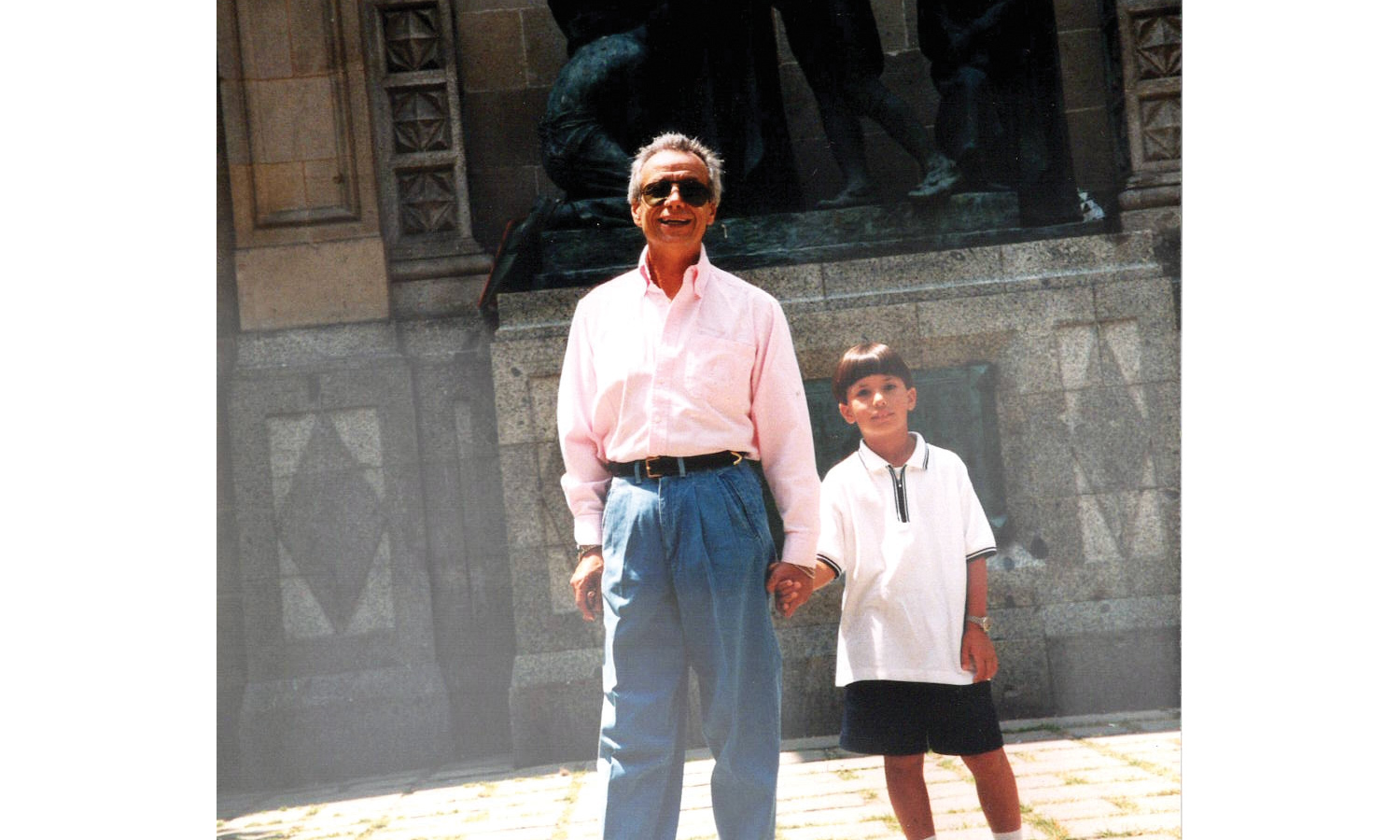
“When somebody walked in to meet my father for the first time, he would say, Who is this person that is in front of me?'” recalls Nicolas. “Is he conservative? Is he confident? Does he want to be perceived a certain way? But in reality, he’s not that way?’ Clothes speak very loudly or the presentation of somebody speaks very loudly. And even if they say, I don’t care about clothes.’ That also says something. When you dress somebody, you have to understand who they are. You have to be able to understand what they want, even if they can’t tell you. My father did this so well.”
Nicolas learned the art of customer service from his father. He shares that when he was 27, he met the “biggest retailer in the world, who also happened to be the richest man in the world.” He complimented Nicolas saying, “Customers rule, and you live it.” This is a motto for Nicolas’ new business.
Customers did rule for Bijan, but he didn’t shy away from challenging societal conventions. As a disruptor, controversy surrounded some of his ad campaigns. Nicolas calls it his “provocative positive” style. The promotions had purpose. “They were not reckless, like some of the campaigns today,” he says. An example was Bijan’s ads in 2000 that featured a nude rotund model named Bella. Bijan defended the ads saying they paid homage to painters, Peter Paul Rubens, Henri Matisse and Fernando Botero, some of whom are in his own collection. “I embrace the beauty of all women,” Bijan said. The backlash turned to acceptance when Tina B



